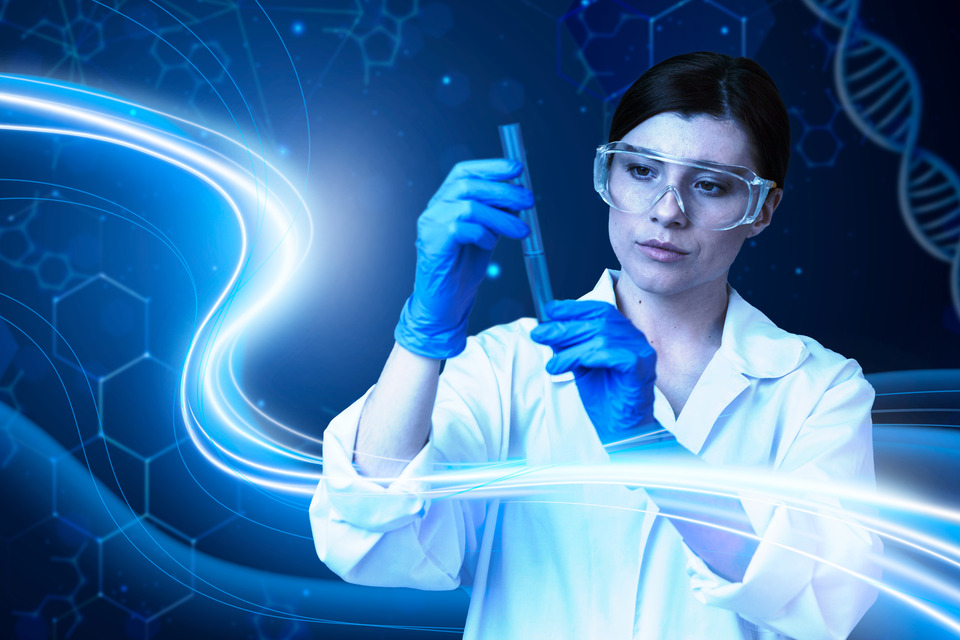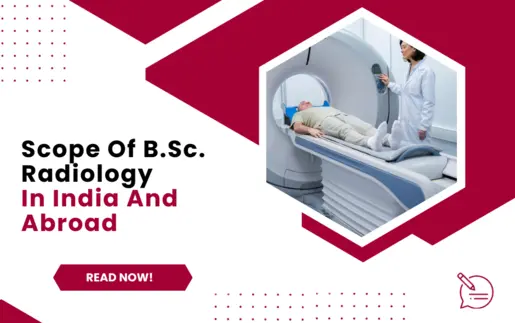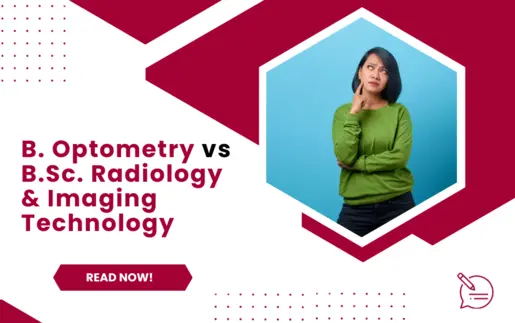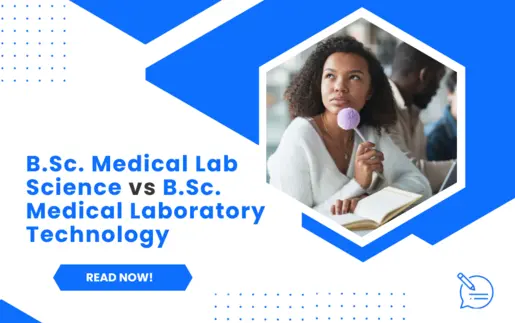Applied Health Sciences Career: Gateway to Impactful Professions
Before any valuable thing in this universe, a balanced, healthy lifestyle is at the top. Only a healthy body and mindset help to face any problematic life challenge. For optimal health and fitness, several health professionals put their best efforts and experience into offering us meaningful lives. This kind of wellness approaches us to manage our lives in a disciplined way. Apart from this community safety, a career in applied health sciences gives you a chance to spread awareness about how to control and prevent any deadly, harmful spreading diseases. Like in the current COVID period, as we all know, they are proven as best warriors and actively perform their services just like a soldier.

Why Study Applied Health Sciences?
Suppose you are interested in this noble profession and want to serve humanity. In that case, a career in applied health science is an extraordinary opportunity in which you can cover the entire study of anatomy, physiology, and related essential areas of biology. Here, the Overall viewpoint is on wellness. To continue a career in applied health sciences, CGC Jhanjeri is one of the best colleges in the Applied Health Sciences course. As per the latest demand, you can get the option in B.Sc Medical Laboratory Sciences and B.Sc (Hons) Nutrition & Dietetics and related advanced courses.
You will get theoretical and practical learning experiences through these modern trending programs. By handling proper techniques, you can get the ability to do demonstrative studies. A high standard of professionalism and critical thinking at the workplace give you the competency to gain leadership qualities in this healthcare world. Your practical and analytical skills in this field have proven supportive to the nation. The ultimate scientific solutions play major advanced roles in human welfare. With a career in applied health sciences, you will get the knowledge to promote your routine performances, and similarly, this will build a healthy society.
After considering the facts, there are a lot of professional choices in this field! The stream of Applied health sciences involves a broad scope of options to browse. Assuming that you are here to find out about the Applied health science courses and how to seek studies in this field, then, at that point, you are ideally located.
Career in Applied Health Sciences
Health Sciences is a part of applied sciences that manages human and creature well-being. Applied sciences is sectioned into two areas:
- the learning, examination, and information on essential human health and
- the application and execution of that information to fix illnesses and to improve and upgrade the general medical services.
In other terms, the essential goal of this stream is to study, explore, practice and grow advanced information and innovation to propel the finding and treatment of the patients eventually. This stream incorporates a general class of disciplines, including human medical services, with the coordination of technical assistance.
A career in applied health sciences offers candidates a more profound comprehension of the determination, anticipation, and treatment of various conditions and ailments. Wellbeing experts regularly make an effort inside a multidisciplinary group to give the best results.
In this health sector, experts work in practically every one of the significant parts of medical care frameworks. The most widely recognised medical service areas are mental healthcare, rehabilitative consideration, disability, and elder care.
Several health science courses are available with a growing global demand, along with vast career opportunities. In this competitive, well-trained sector, many highly professional multinational companies also offer employment on a large scale. In the future, this health sector will witness the latest trends for continuous growth. One can pursue a career as:
Health services administrator
As a Health Service Administrator, you will oversee the functionality of hospitals, clinics and even medical offices. You might be in charge of a specific department within a big organisation. You may be required to hire and manage staff to reduce hospital patient costs. To become a health service administrator, you must have a bachelor’s degree in public, and a master’s degree is also beneficial.
Epidemiologist
Epidemiologists are responsible for determining the leading cause of disease spread. In this job, you must teach the public about prevention methods and collaborate with other public health professionals to conduct tests.
Anesthesia technician
An anaesthesia technician works with surgeons in hospitals. Their main task is to clean and organise anaesthesia equipment before surgery and also assist in patient monitoring during surgery. You need a minimum B.Sc. Medical Technology - Anesthesia & Operation Theatre degree to work as an anaesthesia technician. To progress in this field, you can also take admission to the M.Sc. Medical Technology - Anesthesia & Operation Theatre program.
Nutritionist
Career prospects for a nutritionist are vast. They can work in hospitals, care facilities, clinics, schools, and organisations. They create dietary plans for patients according to their diet's nutritional deficiencies. You might be responsible for developing educational presentations at schools and other institutions. A nutritionist must have a minimum B.Sc (Hons) in Nutrition & Dietetics.
Sonographer
A sonographer is a healthcare provider who uses ultrasound technology to assist in patient diagnosis. These specialists may specialise in abdominal, OB/GYN, or paediatric sonography and operate ultrasonic imaging equipment. They are also referred to as diagnostic medical sonographers or ultrasound technologists. To perform their jobs properly, they must clean and maintain the equipment before appointments, prepare patients for scans by adhering to safety rules, walk patients through testing procedures, and review scans with medical specialists to identify diseases.
Phlebotomist
These specialists frequently work as physician officers in diagnostic labs, hospitals, or blood donation facilities. In addition to collecting identification documents and providing instructions for blood draws, phlebotomists make sure patients are at ease and relaxed during this process. Among their responsibilities are sterilising their instruments, discarding old equipment, labelling and preserving samples, and keeping track of all the equipment they own. Phlebotomists can also take blood samples for study or administer blood transfusions.
Medical assistant
In addition to some clinical tasks, including taking blood pressure, giving immunisations, and monitoring patients' vital signs, these workers usually handle administrative tasks. In addition to making appointments, they also handle insurance and billing paperwork, keep track of patients' medical histories, and get patients ready for exams.
Health information technician
Maintaining private patient data is the responsibility of a health information technologist. These workers handle information about insurance, billing, prescriptions, and medical records in hospitals and doctor's offices. They might collect, arrange, and evaluate this data to enhance patient care and cut expenses at their employment. To receive insurance payment, they must update and verify the integrity of patients' medical records, assign clinical codes to diagnoses and procedures, and uphold security and confidentiality guidelines that safeguard patient data.
X-ray technician
Using specialised equipment, an X-ray technician takes pictures of patients' internal organs and bones. These experts, also called radiographers, use these pictures to assist doctors in diagnosing patients. In addition to X-rays, these technicians might get training in CT, MRI, and ultrasonography imaging procedures. Their responsibilities encompass setting up and maintaining imaging apparatus, getting patients ready and positioned for radiography, assessing and deliberating on imaging findings, and formulating therapy suggestions. These specialists guarantee the safety of their patients by adhering to radiological protocols because of the technology they employ.
Surgical technician
They prepare operating rooms, sanitise instruments and supplies, prepare patients for surgery, and give doctors their instruments. Additionally, surgical technicians may assist with patient transportation, incision preparation, medication administration, and wound dressing.
MRI technologist
Using magnetic resonance imaging (MRI) scanners to produce diagnostic images of patients is the responsibility of an MRI technologist. Medical practitioners can diagnose ailments with these three-dimensional representations of patients' organs and tissues. MRI techs frequently collaborate with doctors who order the scans and radiologists who interpret these diagnostic pictures. Maintaining operational imaging equipment, adhering to safety regulations, situating patients, documenting medical histories, and educating patients about examination procedures are just a few of their responsibilities. They also follow physician directions regarding which areas to scan.
Allied health represents a sector of the healthcare field. These professionals provide services related to identifying, assessing, and preventing diseases. They also manage diet and nutrition, rehabilitation, and health systems. Positions in allied health sciences range from clinical work to office work at private corporations. Healthcare is a diverse field. Healthcare professionals have an opportunity to move both laterally and upward as career interests and goals change. CGC Jhanjeri is one of the best colleges in Mohali to pursue allied health science courses. So, what are you waiting for? Join CGC Jhanjeri today to start your career in allied health science.



















